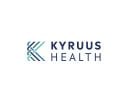At many companies, PTO isn’t just seen as a perk — it’s a way to empower people.
According to Anis Baig, head of talent equity, attraction and insights at MassMutual, the company considers time off to be vital for the overall well-being of its people. That’s why everyone — including top executives — is encouraged to take advantage of it.
MassMutual views PTO as a way for employees to spend time doing what’s best for their health, whether that involves taking a much-needed vacation or volunteering in their local community. In Baig’s mind, the company’s approach to time off reflects its focus on enabling employees to shape their work lives in a way that brings them joy and fulfillment.
“It’s a sense of autonomy and care that we want to encourage through all our benefits,” he said. “It’s not just about mitigating stress and burnout; it’s about empowering our employees to feel their best and care for the ones they love.”
MassMutual sees PTO as an empowering advantage — and it’s far from the only company to do so. Dynatrace takes the same approach to time off, offering team members an unlimited PTO program called “MyTime,” which gives them the flexibility to choose when and how they take time to recharge.
Chief People Officer Sue Quackenbush said that this program allows team members to define how much time they wish to take off. The company also holds quarterly wellness days, during which the entire organization gets the day off, allowing everyone to unplug together.
For Quackenbush, these policies reinforce the company’s commitment to flexibility and respect. “Our employees can take the time they need, and we trust that they’ll still achieve their goals,” she said.
Below, Baig, Quackenbush and leaders from Iterative Health and Kyruus describe how their companies make it easy for employees to unplug and how this has strengthened their cultures.
MassMutual offers insurance, retirement and investment and financial planning services.
Describe the guardrails MassMutual has in place around paid time off. What practices has the company implemented, and why?
We take a holistic view of time off. First, of course, is a generous vacation policy – we want to make sure that our employees actually take that time off. We’ve also introduced ‘flexible holidays’ on top of vacation time to be more inclusive and make it easier for employees to take off any holiday they want without it cutting into their vacation days.
It’s about more than vacation days, too. We offer volunteer time off so employees can give back to causes of their choice. (And we match any time spent volunteering with a monetary gift to their cause). We have a flexible work policy, which encompasses hybrid and remote work, as well as options for part-time and non-standard work weeks, so employees can balance work and life. We provide eight weeks of caregiver leave and generous maternity and paternity leave policies. We also offer ‘take care’ days for employees to use for themself or others and bereavement leave for loved ones – employees define who constitutes their loved ones.
What matters most to us is that we’re creating flexible time off options that serve our employees as whole people and give them the balance they need to enjoy their lives outside of work to the fullest.
How has this culture around PTO impacted employees’ ability to take time off, and what feedback have you gotten about the culture toward PTO at MassMutual?
Our culture of balance and taking time off starts at the highest levels. Our leadership encourages employees to take their time off.
It’s important that we check in with our employees about whether they feel served by our time off benefits. In both our 2022 and 2023 employee surveys, 90 percent of respondents rated our total benefits (including time off) as good or very good, coming in at seven points above benchmark. In addition, 88 percent of employees surveyed said they believe MassMutual cares about and supports their well-being, with 78 percent saying they maintain a healthy balance between work and life. Still, we’re constantly listening to our employees and searching for new ideas on how to create a great, holistic benefits package.
We’re constantly listening to our employees and searching for new ideas on how to create a great, holistic benefits package.”
What other benefits or offerings help support employee well-being and the ability for employees to unplug when needed?
One good example of our holistic approach to benefits is our new well-being wallet. This is $1,250 per year that employees can use to support whatever well-being means to them. We’ve heard from employees already that they’re using the wallet for everything from personal trainers to stationary bikes to financial plan contributions to meditation apps. It can also be used toward monthly childcare or eldercare expenses and much more.
We created the well-being wallet because we want people to lead healthy, balanced lifestyles. This is also why we’ve built things like meditation rooms and gyms into our physical offices as well. We want employees to have the flexibility to define well-being in the way that makes most sense to them. In our announcement of this new benefit, we wrote to employees, “You know what your body and your mind need to feel your best.”
It’s a sense of autonomy and care that we want to encourage through all our benefits. It’s not just about mitigating stress and burnout; it’s about empowering our employees to feel their best and care for the ones they love.
Powered by AI and computer vision, Iterative Health’s technology is designed to improve the accuracy and consistency of detecting gastrointestinal diseases.
Describe the guardrails Iterative Health has in place around paid time off. What practices has the company implemented, and why?
To help foster work-life balance, Iterative Health has established an unlimited PTO program. We strongly encourage folks to put up their “out of office” notification in both Gmail and Slack to alert their colleagues that they’re out of the office. While folks are taking their time off, there’s no expectation that they need to respond to work during that time.
In addition to our unlimited PTO, we observe 10 paid holidays throughout the year as well as a companywide shutdown the last week in December. We recognize how hard our employees work all year long, so the shutdown ensures that folks are taking a break and have space to reset for the new year.
How has this culture around PTO impacted employees’ ability to take time off, and what feedback have you gotten about the culture toward PTO at Iterative Health?
Iterative Health’s unlimited PTO program is designed to give employees time needed away from their everyday work schedule. We know that happy employees are key to any great company. While work contributes to a fulfilling life, we believe that a balance between work and play is essential.
While work contributes to a fulfilling life, we believe that a balance between work and play is essential.”
What other benefits or offerings help support employee well-being and the ability for employees to unplug when needed?
Iterative Health values the mental health and well-being of all employees. The company provides all employees and their dependents access to five fully paid visits with Spring Health, a mental health platform that provides diverse mental health support. Through the use of our unlimited PTO and Spring Health, our goal is to provide our employees with all the tools and resources they need to thrive in their daily lives.
Combining deep observability, AIOps and application security, Dynatrace’s platform helps teams understand the performance of their applications and the user experience.
Describe the guardrails Dynatrace has in place around paid time off. What practices has the company implemented, and why?
Implementing an overall well-being strategy, Dynatrace introduced new programs and resources to help employees balance work and their personal lives as well as enhance our benefit portfolios. In addition to enhancing our short-term and long-term disability insurance, employee assistance program and maternity and parental leave programs, Dynatrace recently implemented wellness days and MyTime.
Quarterly wellness days are a chance for all employees worldwide to unplug without the fear of missing out. These paid days off allow all “Dynatracers” to rest and completely disconnect from meetings and emails. Unlike holidays or vacation time, companywide wellness days make it so that your inboxes don’t pile up, considering everyone has the day off.
MyTime is our flexible unlimited PTO program in the U.S. designed for rest, relaxation or whatever activities help employees recharge. MyTime is typically used for planned absences and is designed to support our employees’ well-being and work-life balance. With MyTime, there is no maximum amount of time provided, and there’s no “bank” of time you need to save up before you can use it.
How has this culture around PTO impacted employees’ ability to take time off, and what feedback have you gotten about the culture toward PTO at Dynatrace?
Candidates and employees are seeking companies that offer flexibility, good work-life balance and stability. With a flexible work culture, we’re able to attract top talent and retain our Dynatracers. Our employee experience is built on a culture of trust made up of real vibes and real people. We know employees have different scheduling needs. Some people have energy peaks in the morning and others in the evening, some have children they need to pick up or drop off and some take care of aging parents. No matter an individual’s personal situation, the Dynatrace work model allows for maximum flexibility. Our employee feedback has been extremely positive. They’re grateful for the flexibility, especially with work location, and with their managers allowing adjustments to meet personal commitments.
No matter an individual’s personal situation, the Dynatrace work model allows for maximum flexibility.”
What other benefits or offerings help support employee well-being and the ability for employees to unplug when needed?
Dynatrace believes that when you empower your people to bring their best selves to work, they’re more productive, creative, engaged and connected to our culture. We’ve already seen how providing flexibility to our employees has impacted our trust, retention and engagement. Currently, we’re excited to provide our employees with global wellness days, flexible PTO, a global employee assistance program, which offers support to employees across all avenues of life and is focused on mental health and well-being, and many more benefits to promote their overall wellness. Moving forward, we’ll continue to invest in providing the tools, resources and programs needed to improve our employee experience.
Kyruus’ multi-channel platform connects patients with healthcare providers.
Describe the guardrails Kyruus has in place around paid time off. What practices has the company implemented, and why?
Being a company in the healthcare space, Kyruus really values employees’ mental health. Taking time off is key to ensuring our employees feel refreshed and focused. To allow for a proper reset, the company offers unlimited time off and doesn’t ask that employees respond to email or Slack messages. Personally, I encourage my team to utilize our “downtime” in between quarter-ends to unplug in addition to any planned time off or vacations. I prefer that they leave their computer behind and not look at email or Slack so they can truly reset.
How has this culture around PTO impacted employees’ ability to take time off, and what feedback have you gotten about the culture toward PTO at Kyruus?
I continue to receive great feedback on our PTO culture. My direct reports feel respected when they ask for time off, knowing the company and I will support them. Everyone across the company embraces this culture and will limit emails and Slack messages to anyone who is out so they don’t feel inclined to respond. This is the first company I’ve worked for that offers unlimited PTO and encourages you to utilize it.
My direct reports feel respected when they ask for time off, knowing the company and I will support them.”
How do you see this work-life balance positively impacting employees' performance at work?
I’ve noticed employees who take time off and take advantage of the great work-life balance we offer perform stronger. Allowing for a reset and stepping away from day-to-day work seems to lead to more engagement and focus when employees return. Since their work is so strong when they return, why change what we’re doing? Everyone wins!













